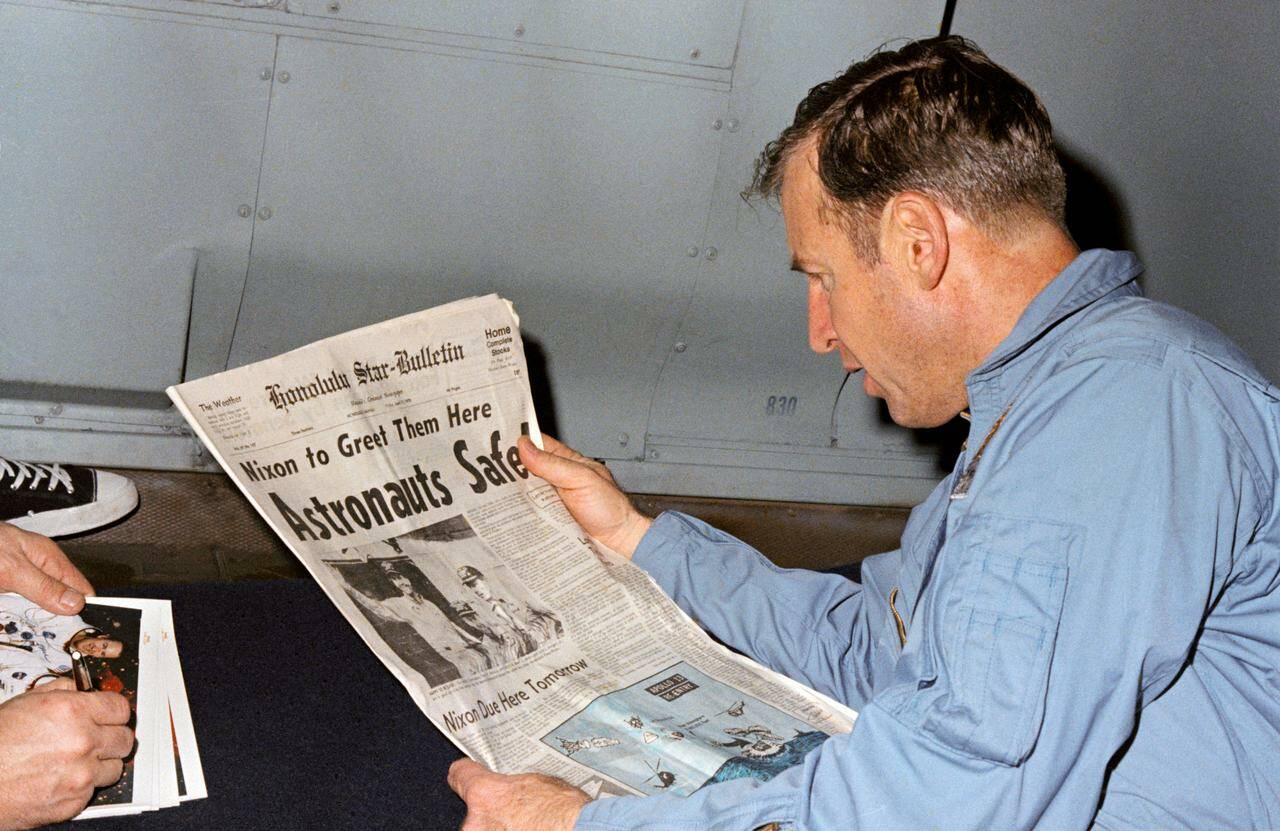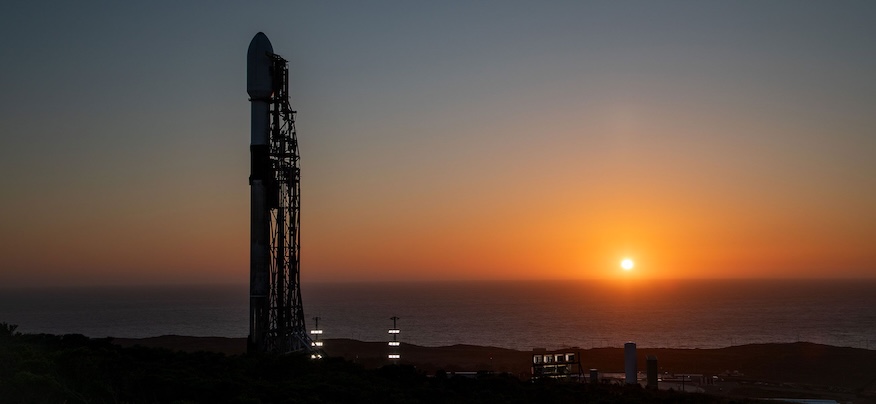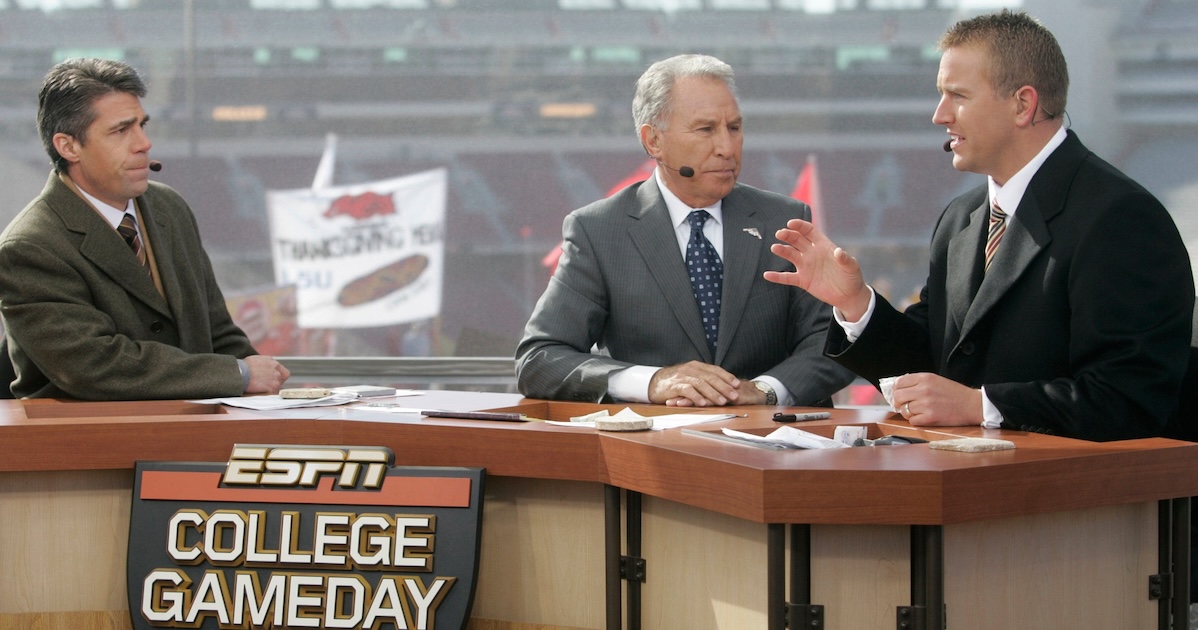Obit Jim Lovell, the former US astronaut and commander of the Apollo 13 mission, has died at the age of 97.
Lovell was selected as part of the second group of NASA astronauts in 1962, having missed out on becoming part of the original Mercury 7. The omission meant Lovell never got to fly in the Mercury capsule, which he more than made up for by being the first astronaut to fly into space four times, twice with the Gemini program and twice with Apollo.
His first mission was 1965’s Gemini 7, which he flew as pilot with Frank Borman as commander. The pair spent nearly 14 days in orbit – a record for the US until the first crewed Skylab mission in 1973 – and the spacecraft served as a passive rendezvous target for Gemini 6A, a first for NASA and a vital milestone for plans to reach the Moon.
Lovell’s second mission was the final crewed flight in the Gemini program, Gemini 12, in 1966. This time around, Lovell was the commander, and a rookie, Edwin “Buzz” Aldrin, was pilot. The mission duration was just a shade under four days, during which Aldrin undertook three Extravehicular activities (EVAs) totalling five hours and thirty minutes, demonstrating that NASA had gotten to grips with astronauts working outside spacecraft.
The mission was also notable for Lovell having to fly the rendezvous manually under instruction from Aldrin following equipment issues.
The next mission was Apollo 8 – another first. After a successful Apollo 7 mission and feeling confident in the Saturn V rocket, NASA decided to send an Apollo spacecraft around the Moon. Lovell was Command Module Pilot for the mission, with Frank Borman as Commander once again, and William Anders making his only spaceflight as Lunar Module Pilot.
The mission was the first crewed flight for the Saturn V rocket and reflected several realities: the mission was initially planned as a test for the Lunar Module, but this was not yet ready. However, mindful of progress by the Soviet Union (the Soviets sent Zond 5 around the Moon with animals on board and returned them safely to Earth in 1968), the decision was taken that Apollo 8 would travel to the Moon, enter lunar orbit, and then return to Earth.
It was an audacious mission. Lovell’s primary role was as navigator. He and Anders also had to deal with Borman suffering from what was later identified as Space Adaptation Syndrome, where weightlessness can affect a person’s vestibular system, resulting in nausea.

Taken aboard Apollo 8 by Bill Anders, this iconic picture shows Earth peeking out from beyond the lunar surface as the first crewed spacecraft circumnavigated the Moon – Image Credit: NASA
As well providing a moving quote alongside the famous Earthrise picture taken by crewmate Bill Anders, Lovell also broke the tension when, after the engine of the Apollo spacecraft fired correctly to take the astronauts out of lunar orbit and on a trajectory back to Earth, he announced, “Please be informed, there is a Santa Claus.”
However, Lovell was most famous for the line, “Houston, we’ve had a problem,” during the Apollo 13 mission.
Lovell was scheduled to fly on Apollo 14 with Ken Mattingley and Fred Haise, but the crew was switched to Apollo 13 after it was deemed that Alan Shepard, the first US astronaut in space, and recently returned to flight status after a prolonged grounding due to medical reasons, needed more training time for a mission to the Moon.
Lovell was the Commander of the mission, with Fred Haise as the Lunar Module Pilot. Jack Swigert replaced Ken Mattingly as Command Module Pilot days before the launch after the crew was inadvertently exposed to rubella – Mattingly was not immune.
The launch was eventful – a second-stage engine shut down early, but the remaining four ran longer to compensate. The rest of the mission went to plan… until it didn’t.
At 55 hours and 54 minutes into the mission, Jack Swigert turned on the stirring fans in the Service Module’s oxygen tanks. A minute and a half later, the astronauts heard a bang as the tanks ruptured. Before the launch, Lovell had approved an action to use the heaters in the tank to purge oxygen from a slow-draining tank. Removing the tank would have delayed the mission, and the procedure wasn’t deemed particularly risky.
However, in this instance, the wrong thermostat switch had been fitted. The result was that the oxygen was purged, as expected, but the insulation on the wiring was also burned off, exposing the copper beneath. The consequences would be felt during the Apollo 13 mission, which famously changed from a mission to the Moon to one of survival.
Lovell’s navigation skills and familiarity with the Apollo guidance computer would prove invaluable during the mission, when a manual realignment was required after equipment had been turned off to save power.
Lovell retired from the Navy and the space program in 1973 and went on to hold positions in several private companies. He was the last survivor of an exclusive club of men that travelled to the Moon twice; John Young and Gene Cernan also achieved the feat, but walked on the surface.
He co-authored the excellent Lost Moon: The Perilous Voyage of Apollo 13 with Jeffrey Kluger, which was published in 1994 and was the basis of the film Apollo 13, in which Lovell can be seen greeting Tom Hanks on the Iwo Jima after the recovery of the crew.
Lovell’s wife, Marilyn, died in 2023. ®
Source link


